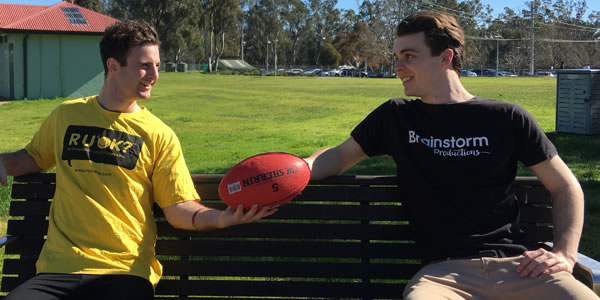As the R U OK? School Partner, Brainstorm Productions works closely with national suicide prevention charity R U OK? to help Australian school students understand the importance of reaching out and talking to their friends and classmates about life’s ups and downs.
Brainstorm Productions provides live in-school theatre programs to 350,000 students each year. The programs are designed to address student wellbeing and to provide students with day-to-day skills and strategies to deal with bullying, cyberbullying and violence. As part of the in-school programs, students are also provided with information about R U OK? and how to find conversation tips, helplines and lots of conversation resources on the R U OK? website.
For students who might be struggling, it can often be difficult to ask for help; and for their friends it can sometimes be difficult to know how to ask “Are you ok?” in a meaningful way. To help, Brainstorm Productions performs a scenario in its play ‘Being Brave’ so students can see a real-life example. Through the ‘Being Brave’ story and characters, students have the opportunity to identify possible signs that suggest someone might be struggling and are offered some ideas on how to start a conversation.
Taken from the R U OK? website, below are some tips on how to ask the question, demonstrate that you care and are listening, offer encouragement, and check in – as demonstrated by the Brainstorm Productions actors.
To find out more, please visit www.ruok.org.au
Getting ready to ask
Before starting a conversation, you want to…
• Pick your moment and make sure it’s a good time for them
• Be relaxed
• Make sure you have plenty of time to listen
• Be prepared for them to be a bit emotional if they do say they’re not ok
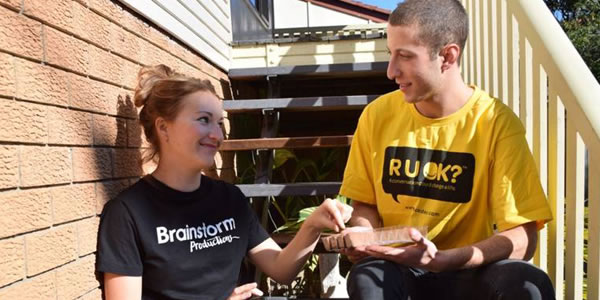
Step 1: Ask “R U OK?”
Help them open up by asking questions like “How you going?” or “What’s been happening?” or “How you travelling?”
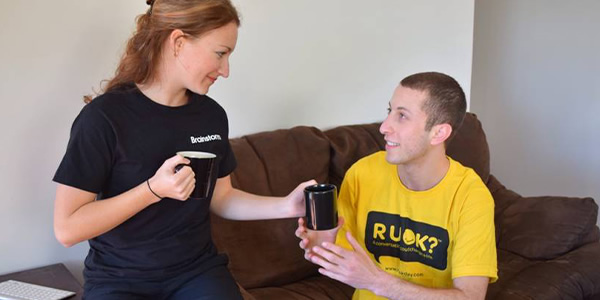
Mention specific things that have made you concerned for them, like “I’ve noticed that you seem really tired recently” or “You seem less chatty than usual. How are you going?”
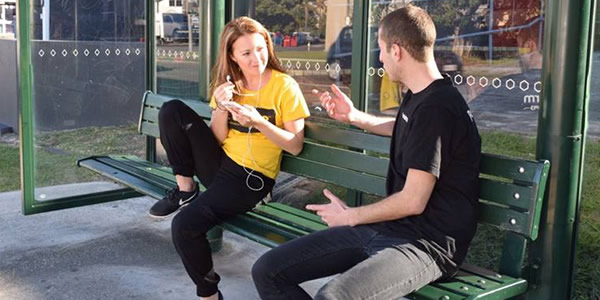
If your friend gets angry or upset, stay calm and don’t take it personally. Let them know you’re asking because you care and acknowledge that times seem tough for them.
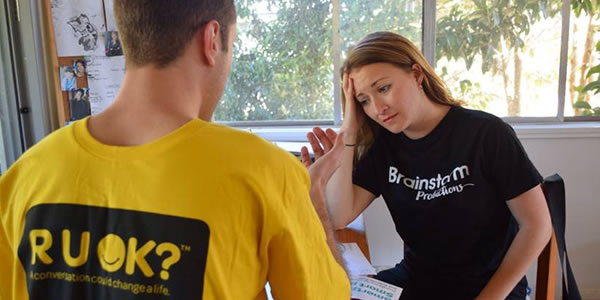
But… If they’re not ready to talk, don’t criticise them. Examples of how you could respond include: “It’s ok that you don’t want to talk about it but please call me when you’re ready to chat” or “Is there someone else you’d rather talk to?”
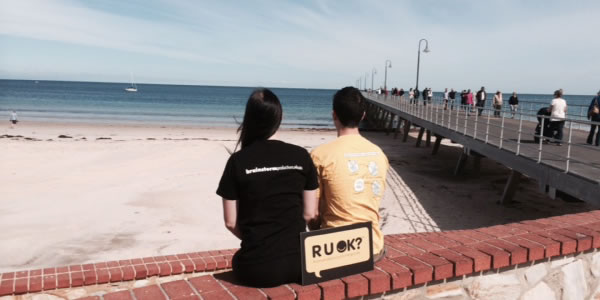
Step 2: Listen without judgement
Take what they say seriously and try not to interrupt or rush the conversation.

Ask them to explain how long they’ve been feeling the way they have and if they know what started it.
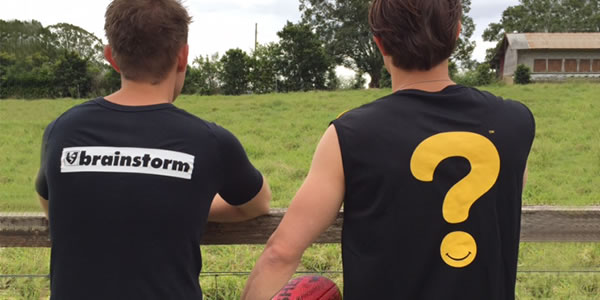
Try to understand what they’re going through (try and walk in their shoes).
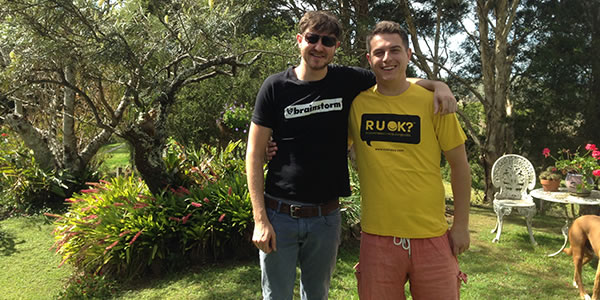
Step 3: Encourage action
Ask “What can I do to help you get through this?” or “How would you like me to support you?” Family and friends are the people most likely to persuade someone to get help when they need it.
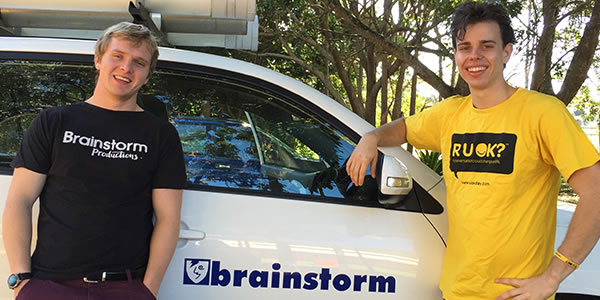
Help your friend think about one or two things that can be done to better manage the situation. It might be they take some time out for themselves or do something that’s fun or relaxing.

If you’ve found a particular strategy or health service useful, share it with them. You can say something like: “When I was going through a difficult time, I tried this… You might find it useful too.”

Step 4: Check in
Stay in touch and be there for them. Genuine care and concern can make a real difference.
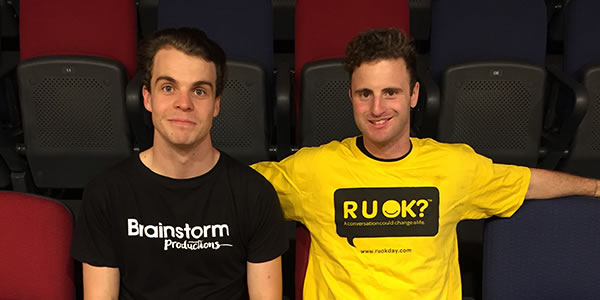
What is R U OK?
- A national charity that aims to inspire and empower everyone to meaningfully connect with people around them and support anyone struggling with life
- Its vision is a world where everyone is connected and is protected from suicide
- Conversation tips and crisis numbers can be found at ruok.org.au
- R U OK?Day is Thursday 8th September – a national day of action and a reminder to regularly check in with family, friends and workmates

